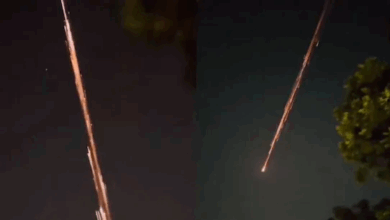Meet the dire wolf puppies: Remus, Romulus, and Khaleesi—How a Texas lab brought an extinct species back to life
News Mania Desk / Piyal Chatterjee / 9th April 2025

The Dallas-based biotech firm Colossal Biosciences has revealed the arrival of three dire wolf puppies—Remus, Romulus, and Khaleesi. The dire wolf, a species prominently showcased in the HBO series Game of Thrones, has been extinct for almost 12,500 years. The company states that male puppies Romulus and Remus were born in October 2024, while female puppy Khaleesi was born in January of this year. Besides bringing back the dire wolf, Colossal has cloned two litters of red wolves, which are the most critically endangered wolf species globally.
“I could not be more proud of the team. This massive milestone is the first of many coming examples demonstrating that our end-to-end de-extinction technology stack works,” CEO of Colossal Ben Lamm said .
“Our team took DNA from a 13,000 year old tooth and a 72,000 year old skull and made healthy dire wolf puppies. It was once said, ‘any sufficiently advanced technology is indistinguishable from magic.’ Today, our team gets to unveil some of the magic they are working on and its broader impact on conservation,” Lamm added.
As stated in the press release, researchers brought the dire wolf back to life by isolating and sequencing DNA from two fossil samples. They analyzed these ancient genomes alongside those of current canids like wolves and foxes, identifying distinctive gene characteristics, including white coat color and dense fur, associated with cold climates of the Pleistocene. By applying gene editing to a gray wolf’s genome, they implemented 20 modifications across 14 genes, which included 15 variants that are no longer existent. Modified cells were examined and inserted into donor egg cells. Following embryo transfer and surrogacy, they successfully gave birth to a dire wolf.
“The de-extinction of the dire wolf and an end-to-end system for de-extinction is transformative and heralds an entirely new era of human stewardship of life,” Dr. Christopher Mason, a scientific advisor and member of the board of observers for Colossal, said in the press release. “The same technologies that created the dire wolf can directly help save a variety of other endangered animals as well. This is an extraordinary technological leap in genetic engineering efforts for both science and for conservation as well as preservation of life, and a wonderful example of the power of biotechnology to protect species, both extant and extinct.”






